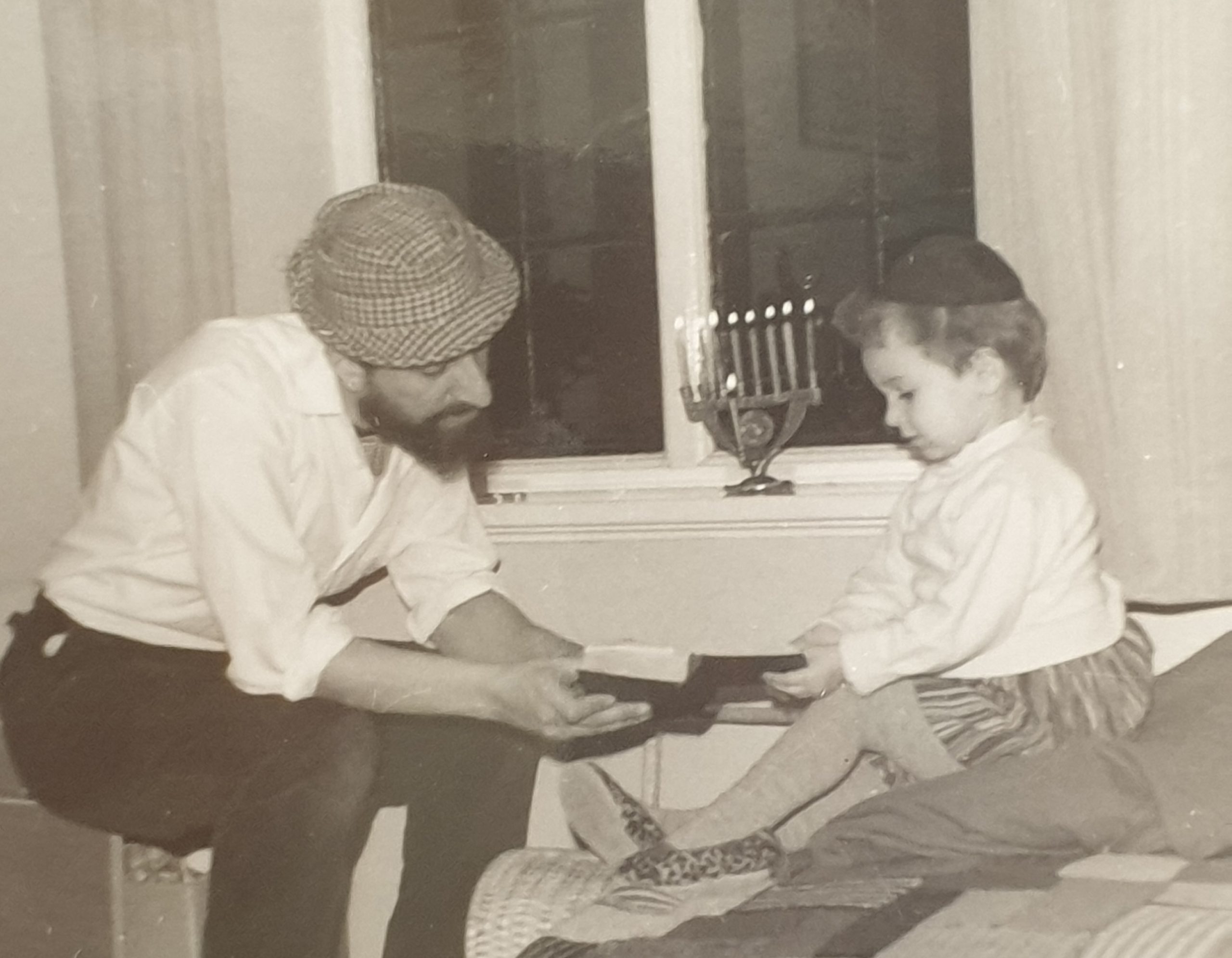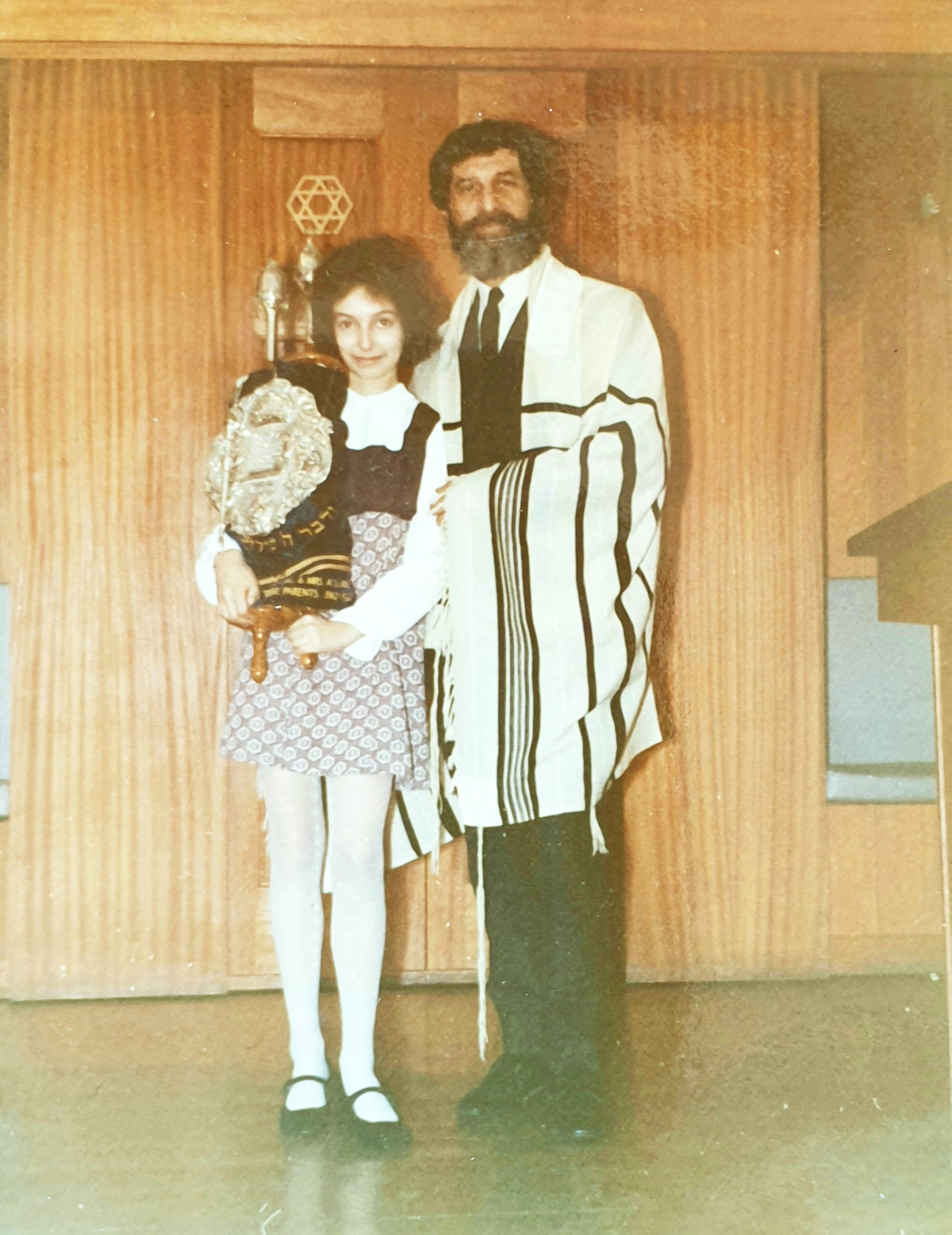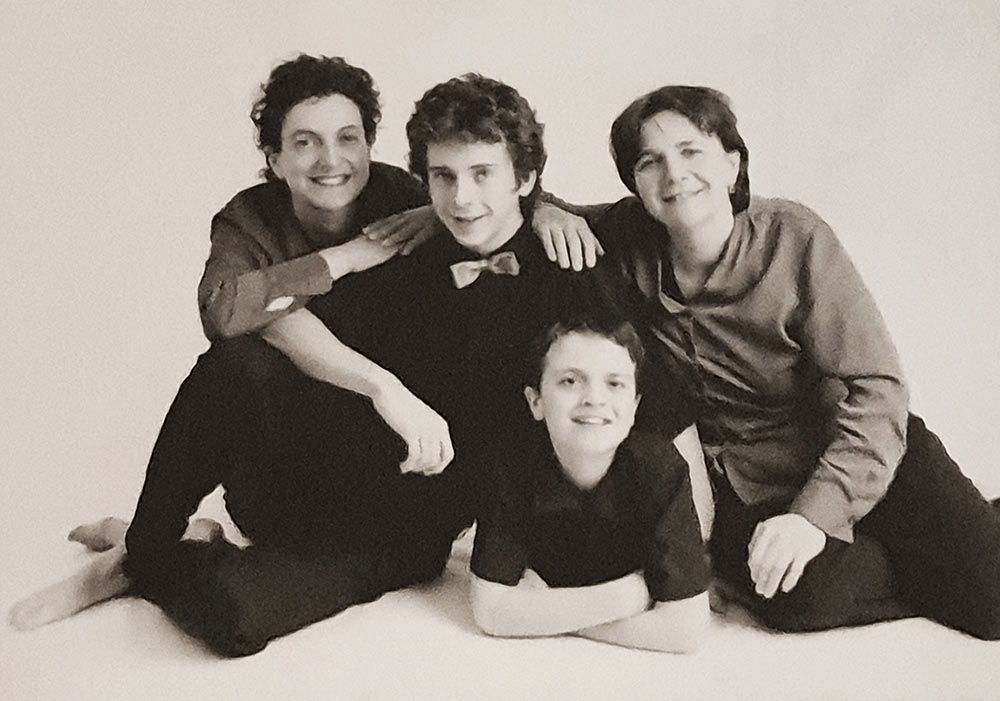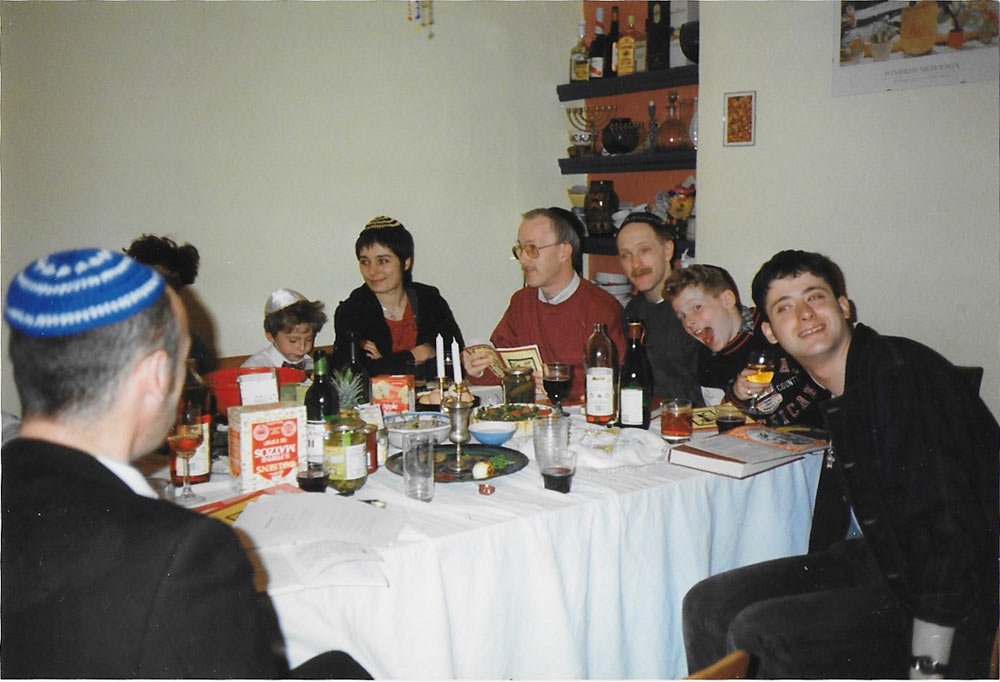Swipe to read
Clem described the feelings of growing up as a rabbi’s daughter.
Read Transcript
“It was like a big extended family. There was six of us, six children, so we had a big family anyway. The synagogue was actually in an old building that had been converted. It was a rambling old building, and we were always there so it felt very much like our second home. It wasn’t too far from where we lived. I grew up feeling very much part of that community. Like it was a sort of extension of our family life in a way. So, the rhythm of the week was very much around the rhythm of the synagogue life … The whole situation of being a rabbi’s kid … As a young child you grow up with your father being in this position of kind of authority in the community. And at the same time you are hearing all these prayers which are about our father and the father figure and so on. So, it was slightly all tied up in that. It was that he was kinda this very big figure in the community. And an important role. And for me I think, I don’t know about belief, I don’t know how. I think as a young child you just do things. You don’t question belief or think about it. For me it was I think, I believed in the Jewish way of life … Of course, we had to be well behaved in shul because people knew who we were and so on. That was a time when there were very few women involved. Even in the Reform Movement. I do remember myself as being a bit of a pioneer of that. When I was early teen after my Bat Mitzvah. I remember I was one of the first women who carried the scroll. My dad was always super encouraging of that. He always wanted me to participate. Those kinds of experiences were very formative for me.”
Clem describes the ‘freeing’ experience of leaving North London to attend university in Manchester.
Read Transcript
“Moving from London, I think I had got to a point where I was finding that North London Jewish community very claustrophobic. I know it’s an enormous community, but it felt very much that I couldn’t be who I was. Later on, I came out, a few years later, and that kind of explained a bit about why I had felt a bit hemmed in. Although I hadn’t named it at that time. So I think coming to Manchester I really let go of any kind of Jewish life. I launched myself into just doing everything. And having a bit of a wild student life. I just kind of felt very free from the constraints of some of the conventionality of the Jewish community. I don’t want to overplay that, because I personally wasn’t restricted about what I could do but there was something about that social environment that I felt quite hemmed in by … So yes, I definitely did disassociate myself to some extent from Jewish life and the Jewish community … I remember eating bacon sandwiches, I thought, right I’m going to do that. I did everything. I thought, right I’m going to try everything life has to offer … There was a point where I was like, that’s behind me, it’s no longer part of my identity. That didn’t last long I have to say. But it certainly was in those days. It was really about finding myself that was part of that.”
Clem describes how coming out as gay resulted in her returning to her Jewish identity.
Read Transcript
“It’s very difficult to explain now because times have changed so much but I think during those years, I was, I was almost, I mean we knew, I knew there were gay people. You know, I had friends at school who were possibly gay. It wasn’t like it wasn’t talked about, but it was a very different level of awareness. So, it wasn’t something I ever considered and thought about consciously … I fell in love. It was really that. You know, just very much, we just totally fell for each other … it was really transformational for both of us. It was meeting each other that was the big transformation … For me there wasn’t a conflict ever with my Jewish identity and in fact, I see a connection with coming out with then also coming back to my Jewish roots more. Because I remember meeting. I was on a Pride march, one of the very early ones, and my friend Nicky, who I am still lifelong friends with, I didn’t know her then, and she came running up to me and she said, ‘Are you Jewish?’ and I said yes. And she said ‘great another Jewish lesbian, brilliant’… At that point there started to be a whole network of Jewish lesbians that we discovered. There was even a Jewish lesbian conference in 1983 … which was the most incredible event … I would say it from the point of view of having a marginalised identity … That’s not part of my spiritual life. It’s part of my social identity. Both of those facts about me or parts of me complement each other in that sense. Of being slightly outside. I do find often it’s easier to be out as a lesbian than as a Jew.”
Clem describes the challenges of being same-sex parents in the 1980s.
Read Transcript
“At that point we hardly knew any lesbians with children … We actually moved to Chorlton because we knew another couple of families here and wanted to build that sense of community … It was a time of real change, but it was also a time … during the 80s when we had Section 28 which was a piece of legislation under the Thatcher era which basically said that, described us as a ‘pretended family’. That was the actual phrase used in the legislation. And they prohibited schools from, what they called promoting homosexuality … It was very tough but it also kind of grew a whole community response … Just by living and being who we were, we were breaking down those kinds of stereotypes. We actually, we pioneered one piece of legislation. Because in the mid-90s there was the Children’s Act that came into law, which was designed to give parental responsibility to, for example, a grandparent who was looking after a child. But our friend who was a solicitor said, ‘this is a real opportunity for you because you can claim joint parental responsibility under this legislation’. So, we were the first couple to do that for two children … So, we had this test case that went to the High Court … but in the end we got Joint Residence Orders for the children … which was a real breakthrough.”
Clem describes the importance of having Jewish LGBTQI+ community groupings.
Read Transcript
“I think that sense of isolation has gone. There is such a big gay Jewish community. I talked about our first conference. A couple of times we went to things. There were a couple of big events in London, big gatherings. There had been quite a lot of networking over the years. But now it’s so easy to just make those connections online and for people to sort of find resources and find each other. And that sense of being sort of really outside or isolated is very different. And also, there is such a lot of work going on in Jewish communities in LGBT issues … there is a change in attitude, a growing awareness … It’s much more possible now to remain attached to the Jewish community and not have to do that separation that so many of our generation had to really do to find their own identity … It’s important to be your authentic self … I feel I can be my whole self in a Jewish environment in a way that I can’t always be in other contexts. There is always that different shared experience, different perspective that sometimes comes out. It’s really important to have that as a place.”



